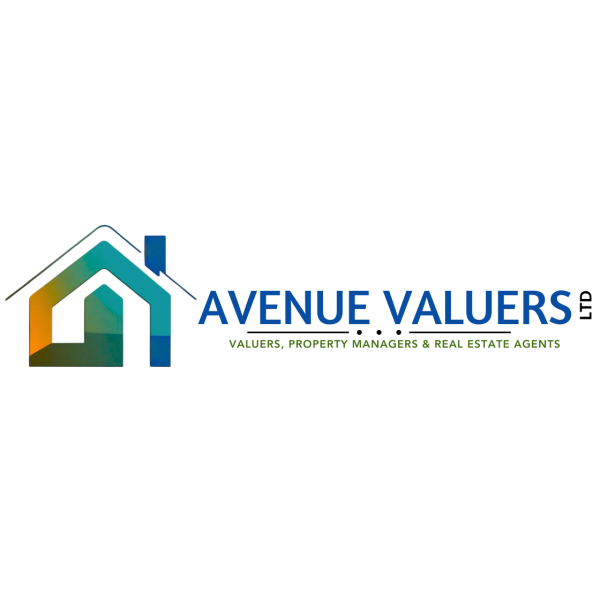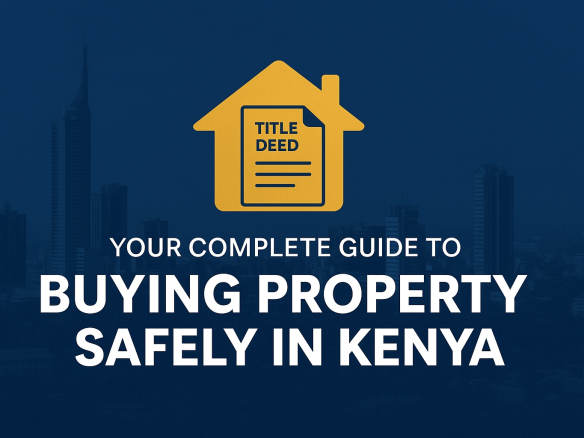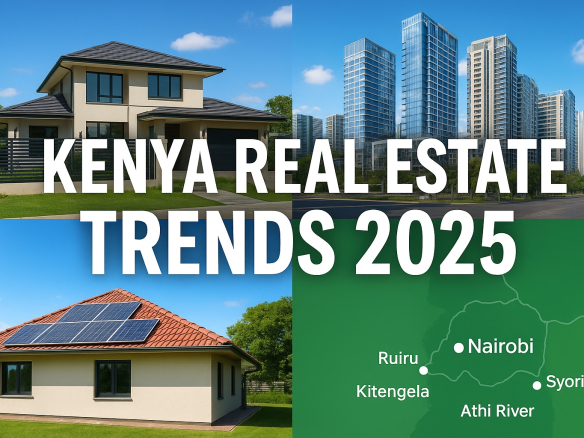Valuation plays a central role in Kenya’s real estate, financial, and business landscape. Whether it involves buying a home, selling land, applying for a mortgage, insuring assets, or preparing company accounts, professional valuation ensures decisions are based on accurate and reliable information. As the property market continues to expand and financial institutions demand greater accountability, individuals and organizations increasingly rely on registered valuers to provide objective assessments.
Different types of valuation services address unique needs — from residential and commercial property valuations to land, industrial, plant and machinery, and even business valuations. Others focus on compliance, such as valuations for audit, financial reporting, or government compensation. Each service provides clarity, protects investments, and promotes transparency in transactions.

1. Residential Property Valuation
Residential property valuation determines the market value of homes, apartments, and residential plots. This service is widely searched by homebuyers, sellers, investors, and banks.
It is used for:
Mortgage applications and secured lending.
Buying or selling houses and apartments.
Insurance and replacement cost estimates.
Wealth management and estate planning.
2. Commercial Property Valuation
Commercial valuation applies to offices, shops, shopping malls, hotels, and rental apartments. These valuations guide:
Business acquisitions and disposals.
Rental income assessments.
Loan security and financing.
Feasibility studies for new developments.
3. Land Valuation
Land remains one of the most valuable assets in Kenya. Professional land valuation is critical for:
Establishing market value before sale or purchase.
Securing bank loans using land as collateral.
Government compensation during compulsory acquisition.
Determining development potential and highest & best use.
4. Industrial Property Valuation
Industrial valuation covers warehouses, factories, logistics facilities, and processing plants. Investors and financiers use these valuations for:
Secured lending and collateral assessment.
Insurance and replacement cost analysis.
Financial reporting for audit and compliance.
Mergers and acquisitions of industrial enterprises.
5. Valuation for Secured Lending / Mortgage Valuations
Banks in Kenya require valuation reports before issuing loans or mortgages. Valuers assess:
Current market value.
Forced sale value.
Long-term investment risks.
This helps banks protect against loan defaults while ensuring borrowers do not overpay for properties.
6. Insurance / Replacement Cost Valuation
This type of valuation establishes the cost of rebuilding or replacing a property in case of damage or destruction. It ensures:
Adequate insurance coverage.
Avoiding over-insurance or under-insurance.
Quick settlement of claims.
7. Valuation for Financial Reporting / Audit Compliance
Companies need asset valuations to comply with International Financial Reporting Standards (IFRS) and Kenyan audit regulations. This service is used for:
Asset revaluation.
Balance sheet preparation.
Tax compliance and depreciation schedules.
Corporate restructuring.
8. Rental Valuation / Rent Assessment
Rental valuations determine fair rental values for residential, commercial, or industrial properties. They are essential for:
Landlords setting market-aligned rent.
Tenants negotiating fair leases.
Lease renewals and dispute resolution.
Investment appraisals.
9. Valuation for Sale / Purchase (Market Value)
Market value valuations ensure transparency in property sales and purchases. Professional valuers analyze:
Comparable property sales.
Location and infrastructure.
Building condition.
Demand and supply in the market.
10. Statutory, Legal & Government Compensation Valuations
When the government compulsorily acquires land for projects such as roads, airports, or railways, professional valuations protect landowners by ensuring fair compensation.
11. Valuation of Special Purpose Properties in Kenya
Special purpose properties are assets that have a unique design, construction, or use, which makes them difficult to compare directly with ordinary residential, commercial, or industrial properties. Examples include schools, colleges, hospitals, churches, petrol stations, hotels, recreational facilities, and government installations.
Unlike standard properties, these assets are not frequently bought or sold in the open market, which means traditional market comparison approaches may not always apply. Instead, valuers rely on specialized methods such as the income approach, cost approach, and replacement cost method to determine their fair value.
Why Valuation of Special Properties Is Important
Financing and Lending: Banks require valuations before accepting such properties as collateral for loans.
Insurance: Replacement cost valuations help determine the cost of rebuilding facilities like hospitals or schools if damaged.
Compliance and Reporting: Organizations such as NGOs, religious institutions, and private schools often need valuations for audit and financial reporting purposes.
Acquisition and Disposal: Buyers, sellers, or government agencies need accurate figures before transactions or compulsory acquisition.
Investment and Feasibility Studies: Investors use valuation to analyze the viability of projects like petrol stations, hotels, or educational centers.
Methods Used in Valuing Special Properties
Cost Approach: Estimating the cost of constructing a similar facility, less depreciation.
Income Approach: Applied where the property generates revenue (e.g., private schools, petrol stations, or hotels).
Replacement Cost Method: Common for institutions where profitability isn’t the main driver (e.g., churches, government facilities).
Challenges in Valuation of Special Purpose Properties
Limited Market Comparables: Few transactions make direct comparison difficult.
Unique Designs: Properties often serve a single function, reducing their adaptability.
Regulatory and Zoning Issues: Special facilities may be subject to strict legal and planning regulations.
Depreciation Estimates: Older institutions like schools and hospitals may have significant wear and tear, requiring careful adjustment.
Examples of Special Property Valuations in Kenya
Schools and Colleges: Valued based on income from fees, replacement cost of classrooms, and boarding facilities.
Hospitals and Health Centers: Assessed using cost of specialized medical facilities, equipment, and operational capacity.
Petrol Stations: Typically valued using income approach, considering fuel sales, convenience store revenue, and location.
Churches and Religious Centers: Often valued using replacement cost method due to their non-profit nature.
Hotels and Resorts: Valued as going concerns, factoring in income streams, goodwill, and brand value.
12. Plant, Machinery & Equipment / Movable Asset Valuation
Businesses require valuation of movable assets such as:
Plant and machinery.
Office equipment.
Motor vehicles.
Specialized tools.
This supports insurance, financing, auctions, and accounting.
13. Business Valuation / Going Concern Valuation
Business valuation assesses the worth of an entire company as a “going concern.” It considers goodwill, revenue streams, liabilities, and market potential. Applications include:
Shareholder buyouts.
Mergers and acquisitions.
Investment decision-making.
Partnership dissolutions.
14. Mortgage & Bank Collateral Valuations
Closely related to secured lending, this service ensures that properties pledged as collateral are worth the loan being issued.
15. Market Value for Land & Buildings
Valuers determine the fair market value of land and buildings for sale, purchase, or investment purposes. This helps investors, buyers, and sellers avoid overpricing or undervaluing property.
Valuation in Kenya is diverse, covering residential, commercial, industrial, agricultural, and specialized properties, as well as businesses and movable assets. Whether you are a homeowner, investor, banker, or government agency, accurate valuation ensures transparency, compliance, and fair decision-making.
The Fundamentals of Property Valuation in Kenya
Property valuation in Kenya is a multifaceted process that encompasses various methodologies and considerations shaped by local market dynamics. Among the key techniques employed are the Income Approach, the Cost approach, and the Sales Comparison Approach. Each method comes with its own set of advantages and may be utilized depending on the type of property, its intended use, and market conditions. As a notable example, the Income Approach is frequently enough preferred for investment properties, where potential income generation plays a significant role in determining value.
Understanding the local market is crucial in this context. Valuers must consider a range of factors, such as location, infrastructure development, and economic indicators. The Kenyan real estate market has seen a dynamic shift with the rise of urbanization and increasing demand for housing. This shift demands that property valuers remain adept in analyzing trends, assessing comparable property sales, and maintaining awareness of legislative changes that might impact valuations. Here are some essential influences on property values:
- Location: Proximity to amenities and economic activity.
- Market Demand: Fluctuations in buyer interest and investment potential.
- Condition of Property: The maintenance and structural integrity of buildings.
- Economic Trends: Inflation rates, job growth, and overall economic health.
| Valuation Method | Description | Best For |
|---|---|---|
| Income Approach | Estimates value based on potential income generation. | Investment properties |
| Cost Approach | Assesses the cost of replacing or reproducing the property. | New properties |
| Sales Comparison Approach | Compares property to similar recently sold properties. | Residential properties |

The Landscape of Asset Appraisal Techniques
Understanding the various methods of asset appraisal is essential for stakeholders in Kenya’s vibrant property market. Different techniques serve distinct purposes and offer unique insights into valuing real estate and other assets. among the most common approaches are Cost Approach, Sales comparison Approach, and Income approach. Each method aligns with different asset types, ensuring that appraisers can tailor their strategies according to individual cases. Choosing the right technique can significantly influence investment decisions, risk assessments, and strategic planning.
To further delineate these techniques, consider the factors influencing their application. The Cost Approach is typically employed for newer properties where actual construction costs can be easily steadfast or depreciated if aged, while the Sales Comparison Approach draws from market research, comparing the subject property to similar properties that have recently sold. Conversely, the Income Approach is primarily utilized for investment properties, analyzing potential revenue streams. The table below summarizes these techniques:
| Valuation Technique | Description | Best Used For |
|---|---|---|
| Cost Approach | Calculates the cost to replace or reproduce the asset. | New properties and unique assets. Old – Depreciated |
| Sales Comparison Approach | Compares similar properties that have recently sold. | Residential properties and homogeneous assets. |
| Income Approach | Analyzes expected revenue generated from the property. | Investment properties and commercial assets. |

Key Factors Influencing Market Value in Kenyan Real Estate
Understanding the nuances that impact market value in Kenyan real estate is essential for investors and homeowners alike. Several factors interplay to shape property worth, including:
- Location: Proximity to urban centers, accessibility to major roads, and availability of amenities significantly enhance property desirability.
- Economic Conditions: National economic stability, employment rates, and inflation directly influence property demand and pricing.
- Market Trends: Real estate trends, including shifts in buyer preferences and investment flows, play a critical role in determining how values fluctuate over time.
- Infrastructure Development: Ongoing and planned developments, such as roads, schools, and hospitals, usually correlate with future property recognition.
Furthermore, environmental factors and legal implications should not be overlooked. Properties located in areas prone to flooding or other natural challenges may see declines in value, while those in safe zones with robust governance structures tend to maintain higher appraisals. Potential regulatory changes can also impact valuations significantly, as evidenced in recent years by: –
| Regulation Change | Impact on Market Value |
|---|---|
| Land Use Changes | Increased value due to expanded zoning rights. |
| Tax Regulation Adjustments | Variable impact, with potential for increased costs affecting pricing. |
| Title Registration Improvements | Enhanced buyer confidence leading to higher values. |
Accurate Valuation Practices
To enhance the accuracy of valuation practices in the property and asset sector, professionals use a multifaceted approach. This starts with developing a strong understanding of local market conditions, which can be achieved through extensive research and analysis. Key strategies include:
- Regular Market Surveys: Engage in periodic surveys to gauge current market trends, prices, and demand shifts.
- Utilizing Technology: Leverage advanced software tools for data analysis and to simulate various valuation scenarios.
- Collaboration with local Experts: Partner with real estate agents, fellow appraisers, and other market insiders to obtain first-hand insights.
Moreover, adopting standardized methodologies can significantly enhance reliability. Establishing an extensive framework that includes:
| Methodology | Description |
|---|---|
| Cost Approach | Calculating value based on the cost to replace or reproduce the asset. |
| Sales Comparison | Analyzing recent sales of similar properties to estimate value. |
| Income Approach | Based on the income potential of income-generating properties. |
By integrating these methodologies with real-time data and local insights, valuers create more accurate appraisals, thus fostering greater transparency and confidence in the property and asset market.
20 Frequently Asked Questions (FAQs) on Valuation Services in Kenya
1. What is property valuation?
It is the process of determining the current market or replacement value of a property or asset.
2. Who is allowed to carry out property valuations in Kenya?
Only licensed and registered valuers recognized by the Institution of Surveyors of Kenya (ISK) and the Valuers Registration Board.
3. How much does property valuation cost in Kenya?
Valuation fees are regulated by law but may vary depending on the property type and value.
4. How long does a property valuation take?
Most valuations take 2–5 working days, depending on complexity and location.
5. Why do banks require valuation reports?
To confirm that the property used as collateral is worth the loan amount.
6. What is the difference between market value and forced sale value?
Market value is the fair selling price, while forced sale value is the amount realizable under urgent sale conditions.
7. Can I use one valuation report for multiple banks?
Most banks prefer fresh reports from valuers on their approved panel.
8. How often should properties be revalued?
For businesses and institutions, revaluation is recommended every 3–5 years.
9. What documents are needed for a valuation in Kenya?
Title deed, property details, building plans (if available), and identification documents.
10. What is rental valuation?
It determines the fair rent payable for a property based on market conditions.
11. Why is land valuation important?
It guides purchase, sale, taxation, and compensation during compulsory acquisition.
12. What is insurance or replacement cost valuation?
It estimates the cost of rebuilding or replacing a property if it is destroyed.
13. What are special purpose properties?
Unique assets such as schools, churches, and hospitals that require specialized valuation methods.
14. Can machinery and vehicles be valued?
Yes, through plant, machinery, and movable asset valuation.
15. What is business valuation?
It assesses the worth of an entire company, including assets, income, and goodwill.
16. Who regulates valuers in Kenya?
The Valuers Registration Board (VRB) under the Ministry of Lands and the ISK.
17. Do valuations apply only to real estate?
No. Valuation also covers businesses, machinery, vehicles, and special assets.
18. Can a valuation affect property tax?
Yes, especially when county governments use updated property rolls for rates.
19. What is a valuation report?
An official document prepared by a registered valuer detailing the assessed value of a property.
20. Why should I hire a registered valuer?
Because only registered valuers provide legally recognized and reliable valuation reports in Kenya.




Join The Discussion